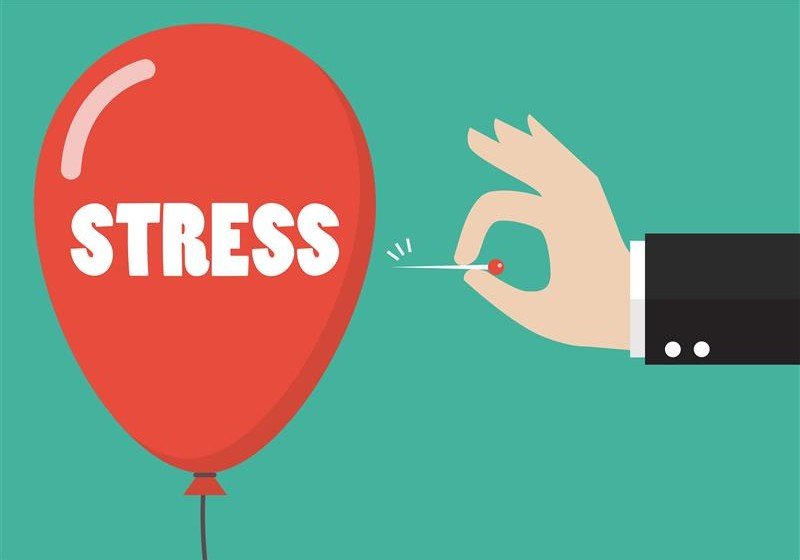Mental health is just as important as physical health, and managing stress is a key part of maintaining overall well-being. Chronic stress can negatively affect your mood, relationships, and physical health, so incorporating stress-reducing habits into your daily routine is essential. Here are 10 daily habits to help reduce stress and improve your mental health:
1. Practice Deep Breathing
Overview: Deep breathing helps activate the parasympathetic nervous system, which calms the body and mind.
- Action: Spend a few minutes each day practicing deep breathing exercises. A simple method is the 4-7-8 technique:
- Inhale through your nose for 4 seconds
- Hold your breath for 7 seconds
- Exhale slowly through your mouth for 8 seconds
- Tip: Try to practice deep breathing whenever you feel stressed or anxious, even if it’s just for a few minutes.
2. Engage in Physical Activity
Overview: Regular exercise releases endorphins (the body’s natural stress relievers), improves sleep, and boosts mood.
- Action: Aim for at least 30 minutes of physical activity each day. It doesn’t have to be intense—walking, yoga, or cycling are all great options.
- Tip: Find an activity you enjoy to make it easier to stick to. Physical activity not only reduces stress but also improves overall health.
3. Set Boundaries and Prioritize Self-Care
Overview: Setting boundaries and carving out time for yourself is essential for maintaining mental well-being.
- Action: Learn to say no when necessary. Protect your personal time and energy by prioritizing activities and people that nourish you.
- Tip: Schedule daily “me time,” whether it’s reading, taking a bath, or simply relaxing without distractions. It’s crucial to recharge.
4. Stay Organized
Overview: Clutter can create mental stress and anxiety, so staying organized can help reduce feelings of overwhelm.
- Action: Take time each day to organize your space, whether it’s your desk, bedroom, or kitchen. It doesn’t have to be a major cleanup—just tidying up regularly can have a significant impact.
- Tip: Use a planner or digital calendar to stay on top of appointments and tasks, reducing the stress of forgotten commitments.
5. Practice Gratitude
Overview: Focusing on what you’re grateful for helps shift your mindset from stress to positivity.
- Action: Write down three things you’re grateful for each day. This simple practice can help you appreciate the good in your life and reduce stress.
- Tip: Gratitude journaling can be done at any time of the day, but it’s especially effective if done in the morning to start your day on a positive note.
6. Limit Social Media and Screen Time
Overview: Constant exposure to social media and news can increase stress and anxiety levels.
- Action: Set time limits on your social media usage. Consider having screen-free times, especially before bed, to allow your mind to unwind.
- Tip: Instead of mindlessly scrolling, engage in activities that bring you joy or relaxation, like reading a book, spending time outdoors, or doing a creative hobby.
7. Connect with Others
Overview: Social connection is vital for mental well-being. Sharing your thoughts with friends, family, or a support group can lighten your emotional load.
- Action: Take time each day to connect with a friend, family member, or colleague. This could be a phone call, a short text message, or a social media message.
- Tip: Quality matters more than quantity. Even a brief check-in can help improve your mood and reduce feelings of isolation.
8. Get Enough Sleep
Overview: Poor sleep can exacerbate stress and hinder your ability to cope with daily challenges.
- Action: Aim for 7-9 hours of sleep per night to help your body and mind recharge. Create a calming bedtime routine and stick to a regular sleep schedule.
- Tip: Avoid caffeine, alcohol, or heavy meals before bed. Make your bedroom a restful environment by keeping it cool, dark, and quiet.
9. Eat a Balanced Diet
Overview: What you eat has a direct impact on your mood and stress levels. A healthy diet supports overall well-being and reduces anxiety.
- Action: Focus on eating whole, nutrient-dense foods like vegetables, fruits, whole grains, lean proteins, and healthy fats. Avoid excessive sugar and processed foods, which can contribute to mood swings.
- Tip: Stay hydrated throughout the day. Dehydration can increase feelings of fatigue and irritability, making stress harder to manage.
10. Engage in Mindfulness or Meditation
Overview: Mindfulness and meditation are powerful tools for managing stress and promoting mental clarity.
- Action: Dedicate at least 5-10 minutes a day to mindfulness or meditation. Use apps like Headspace or Calm to guide you through relaxation exercises or simply focus on your breath.
- Tip: Mindfulness doesn’t have to be formal meditation—it can be practiced by being present in the moment during daily tasks, like eating, walking, or even doing the dishes.




Live dealer games add unmatched excitement, and platforms like Super PH elevate the experience with top-tier slots and immersive gameplay for every player.